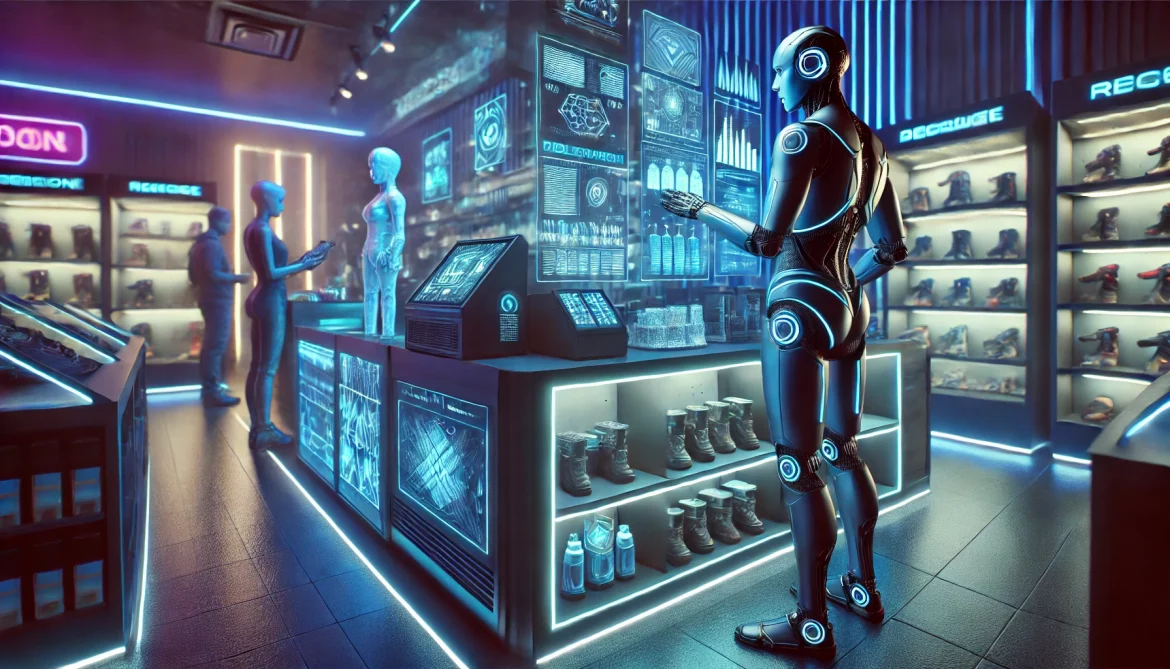
With the pandemic now in firmly in the rearview mirror, the retail industry must turn to its brick-and-mortar operations for transformation.
Customers have learned to use personalized e-commerce, conversational artificial intelligence chatbots and near real-time deliveries. Now, they expect a similarly enhanced experience as they head back into retail stores. The onus is on retail leadership as a whole, and store directors in particular, to provide an outstanding customer experience while managing costs and profitability.
Over the last couple of years, AI — especially generative AI — has been transforming the way we do business. Companies are increasingly making use of AI and machine learning to improve efficiency, reduce costs and boost profitability. As the retail sector struggles with labor shortages and increasing costs, leaders are looking to technological innovations for help.
One such innovation is AI agents — intelligent systems that not only can interact with humans using natural language, but can also incorporate vast amounts of data and knowledge in order to make autonomous decisions. AI agents can analyze the situation, decide the best course of action, take that action, summarize and explain the reasons behind it, and finally learn and adapt from the interaction.
AI agents can be deployed in a wide range of use cases, from inventory management to workforce scheduling and training to customer service.
Inventory Management
There are three key areas in inventory management in which AI agents can help: stock control, demand prediction, stock replenishment and waste control.
AI agents are very good at providing real-time insights on inventory. The can alert staff when inventories are low or in an abnormal situation, such as a heat wave that causes a spike in sales of drinks and ice creams. AI agents can take this into account, and not only alert the staff, but also forecast demand and place replenishment orders to keep the shelves.
Another key strength of AI agents is their ability to use GenAI and predictive AI to forecast demand. They can factor in sales transactions, market trends and customer behavior to accurately forecast demand thereby preventing both overstock and stockouts.
Because they’re good at demand prediction, AI agents can automate the replenishment process. They can create and track the replenishment orders, process incoming replenishments, and alert staff when orders are placed, delivered or delayed.
AI agents can be multimodal, incorporating multiple inputs including text, voice, images and documents. Their image-processing ability can be useful in monitoring the quality of products and reducing waste, especially in the case of perishables. They can keep track of expiration dates and spoilage, and determine when to discard spoiled items. For those with expiry dates or seasonality, they can recommend when to promote the products and the sale price.
Customer Experience
AI agents can help retailers provide differentiated interactions that engage customers and build brand loyalty. They can analyze individual shopping behaviors and purchase history to recommend products and services that are tailored to customers’ preferences.
AI agents enhance the capabilities of chatbots and voice bots to provide personalized service, both online and in stores, through kiosks that handle such common tasks as providing basic information, responding to loyalty requests, and ordering specialty items.
AI agents can analyze shopping history, demand, competition and environmental factors to dynamically adjust pricing in real time, while ensuring profitability and maximizing revenue.
Security and Loss Prevention
Through their image- and video-analysis capabilities, AI agents can detect security issues, fraud and theft by monitoring key areas of the store for anomalous activities and unusual patterns, and triggering swift interventions through real-time alerts.
When it comes to creating optimal workforce schedules, store directors must ensure that stores are adequately stocked and staffed. This task becomes even more challenging during peak seasons, such as holidays and school starts. AI agents can help by analyzing foot traffic and sales patterns, and alerting for low staffing situations. They can also interact with staff to adjust schedules, handle overtime and respond to absences.
Following are some key elements that need to be considered in the successful implementation of AI agents.
- Data quality and privacy. AI agents rely heavily on data, so it needs to be complete and of good quality. When it comes to ensuring customer privacy, companies need to put into place adequate protections to ensure that the data isn’t incorporated into the training of the AI agents.
- Ethical bias. Because AI agents rely on algorithms and data sets drawn from human nature, it is imperative to have processes and governance to ensure that bias is minimized, and customers aren’t impacted by it.
- System integration. AI agents to need to interact with other software. Integrations with point-of-sale and customer relationship management systems must be effectively managed in order for the technology to be successful.
- Employee training and buy-in. AI agents are the new virtual workforce for retailers. To ensure their adoption and success, the human workforce needs to be supplied with adequate information about the technology’s benefits, as well as requirements for training.
- Measuring KPIs and ROI. AI agents need to be measured against goals to ensure that they’re on track and delivering the promised return on investment. Implementation requires a whole new set of metrics and key performance indicators.
AI agents are the new transformative technology that will revolutionize retail stores, helping managers to become more efficient, and provide an engaging customer experience.
This post was originally published on Supply Chain Brain
